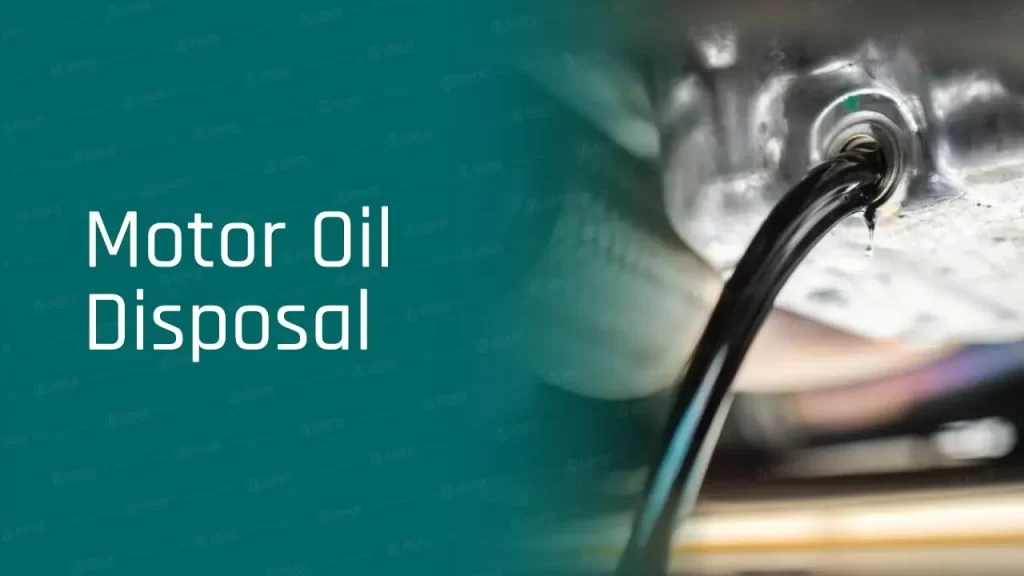
Motor oil, essential for vehicle engines, is primarily a petroleum hydrocarbon base stock (90%) with an "additives package" (10%) that enhances performance, prevents sludge, and protects against wear and corrosion. However, during use, it accumulates hazardous impurities like dirt, metal, water, and chemicals. Improper disposal of this used oil poses severe threats to the environment and public health, making responsible management a critical necessity. The very additives that make new oil effective contribute to its post-use hazard when mixed with contaminants, necessitating robust recycling.
Improper disposal of used motor oil poses severe environmental and health risks. It is persistent and degrades slowly.
| Contaminant | Specific Environmental/Health Impact |
| Lead, Cadmium, Chromium, Arsenic | Neurological/kidney damage, carcinogenic, water/soil pollution |
| Dioxins, Benzene, Polycyclic Aromatics | Highly toxic, carcinogenic, respiratory issues, water/soil contamination |
| Petroleum Hydrocarbons | Harm soil, inhibit plant growth, water pollution |
Responsible motor oil disposal is crucial for environmental protection.
Collect used oil in clean, leak-proof containers with tight-fitting lids, ideally the original oil container. Never mix used oil with other substances like water, gasoline, or solvents, as this renders it unrecyclable. Store containers securely on a surface that prevents seepage, away from fire hazards, and clearly label them "Used Oil".
Locate recycling facilities by checking with local automobile maintenance shops, auto parts retailers, waste collectors, or government waste officials. Online resources from environmental agencies or industry organizations can also help find certified collection centers. Some communities also host temporary oil collection events.
Used oil filters contain residual oil and reusable metal. Drain them thoroughly and recycle them at the same collection centers as used oil. Learn about the need of replacing new oil filter with every oil change in this informative blog post.
Motor oil doesn't "wear out"; it just gets dirty. This means it can be cleaned and reused, making it a valuable resource.
"Re-refined" oil undergoes extensive purification, mirroring crude oil refining, to return it to virgin-like quality, allowing it to be transformed back into new lubricating oil. This closes the loop in the product's lifecycle, reducing reliance on virgin resources.
The UAE has stringent regulations for engine oil disposal, prohibiting pouring it down drains, onto the ground, or into water bodies.
Federal Law No. 12 of 2018 defines "Oil Waste" broadly and mandates the Competent Authority to oversee its collection, treatment, and recycling, ensuring it's not mixed with other wastes. Violations can result in fines up to AED 1,000,000 for establishments and AED 30,000 for individuals.
Used oil must go to designated reprocessing centers. In Sharjah, authorized companies include Al Ghadban Trading Company LLC, AL Muheet Used Lubricants Oil Collection LLC, and Blue Whale Environment Services LLC. Al Ghadban Group, a pioneer since 1972, holds ISO certifications and permits for nationwide collection and treatment. These companies offer collection services for various volumes. Community initiatives, like Bee'ah Tandeef's cooking oil recycling, indicate growing municipal support for waste management. Always check with local authorities for current guidelines.
Armor Lubricants is committed to environmental stewardship, promoting proper motor oil disposal and recycling. This aligns with global sustainability practices and UAE regulations. By educating customers on responsible disposal and highlighting recycling benefits, Armor Lubricants contributes to resource conservation, energy efficiency, and a reduced environmental footprint, demonstrating strong corporate social responsibility.
Responsible used motor oil disposal is a shared responsibility crucial for protecting natural resources, public health, and ensuring a sustainable future. Improper disposal poses significant environmental hazards, contaminating water, soil, and air. Fortunately, recycling offers an effective solution: used oil doesn't wear out, it just gets dirty. Re-refining transforms it into new lubricants and other valuable resources, conserving virgin materials and energy. Therefore, collect used oil safely in unmixed containers and utilize certified recycling centers. This simple act of stewardship makes a tangible difference for a cleaner, healthier world.
